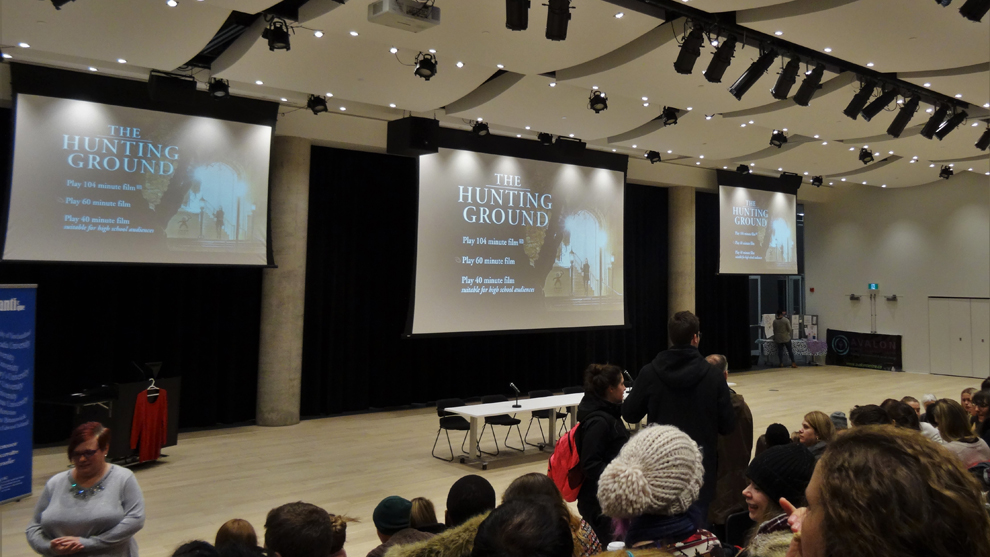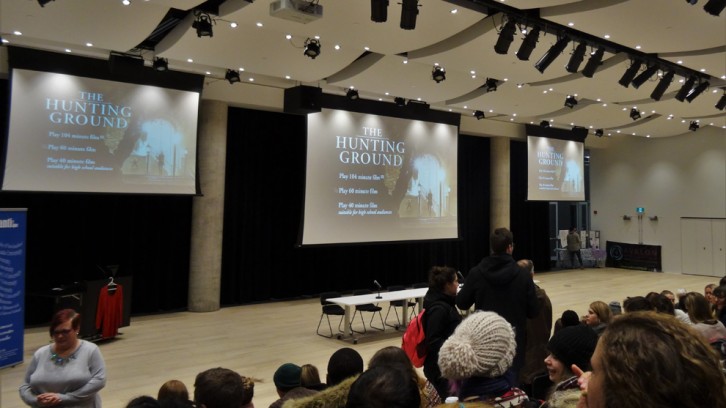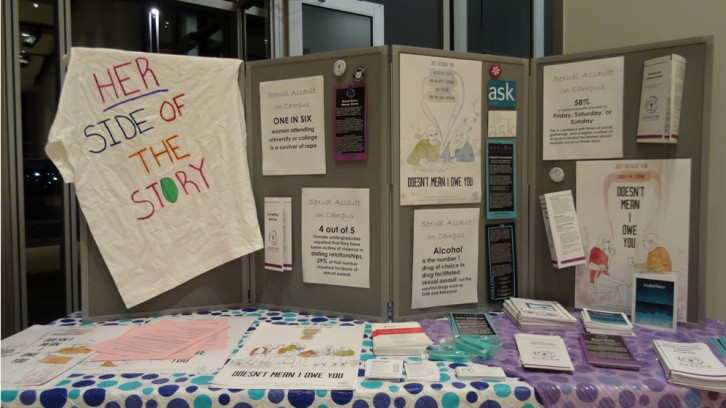Education, collaboration needed to fight sexual assault: panel
Stronger policies, instruction regarding consent needed to combat the problem of rape culture at universities, participants argue

caption
Audience members prepare to watch "The Hunting Ground"
caption
Audience members prepare to watch “The Hunting Ground” and await the expert panel
Several hundred people turned up at the Halifax Central Library to hear an expert panel present their recommendations at an event hosted by Alexandra Dobrowolsky, a professor of political science at Saint Mary’s University.
Caroline Andrew, professor and director at the Centre on Governance at the University of Ottawa, said the university’s efforts to tackle rape culture had determined that working with community groups is key.
“I think the most important part of what we suggested was partnership between community-based organizations, the university campuses and the students,” Andrew said.
She said that two groups were brought in to offer support for student victims of sexual assault and that they also coached university staff.
Andrew was the head of a group that produced a report prompted by sexual assault allegations against the university’s hockey team and the discovery of a sexually derogatory conversation about a female professor.
Weak university policies
The panel also discussed glaring weaknesses in university sexual assault policies and a lack of education around consent.
Elaine Craig, an assistant professor at the Dalhousie law school, said universities must stop acting defensively when sexual assault incidents occur to protect against victim blaming.
She highlighted deficiencies in Dalhousie University’s definition of sexual assault and asked, “Why do the vast majority of universities in Canada today still not have sexual assault policies?”
Panellists from Saint Mary’s and Mount Saint Vincent Universities said consent is not correctly understood by many Canadians and young people must be taught to build consent into their sexual experiences. They also commented on the lack of information on rape culture and the work currently being done to understand and combat the problem.
Rachel MacDonald, vice-president of academic affairs at the Saint Mary’s University Student Association, said, “Although every time I watch this documentary, my chest gets tight, and I feel frustrated and sad and disappointed, I’m really hopeful when I see the students and all the work that they’ve done.” She feels that media coverage often makes it look like there is a lack of effort in tackling rape culture, when in fact, it’s a lack of understanding.
Film screening
Prior to the panel discussion, there was a screening of the 2015 documentary The Hunting Ground. The film takes an in-depth look into the issues of rape and sexual assault on college campuses in the U.S. It reveals a staggering statistic, that roughly one in five women will be the victim of sexual assault during their time at college in the U.S. The producers go on to present a bleak view of the way the victims are treated by their institutions and the lack of punishment for perpetrators, even when convicted in court.

caption
Information and support for the event was provided by the Avalon Sexual Assault Centre
Saint Mary’s was rocked by similar events with frosh week chants about underage sex captured on video in September 2013 and misogynistic tweets posted by their football players discovered just a few months later.
Response to the event from the audience was positive.
Richard Devlin said, “There is more student activism than I realized.”
Nicole Maunsell felt the film ended with an inspiring message and that it’s good to see events like this, given the large student population in Halifax.
Diane Crocker, a panellist and professor from Saint Mary’s said, “A lot of people in the community care. I saw a lot of young people’s faces, which is awesome, which means there’s a body of people interested in making the changes. So that’s optimistic.”
